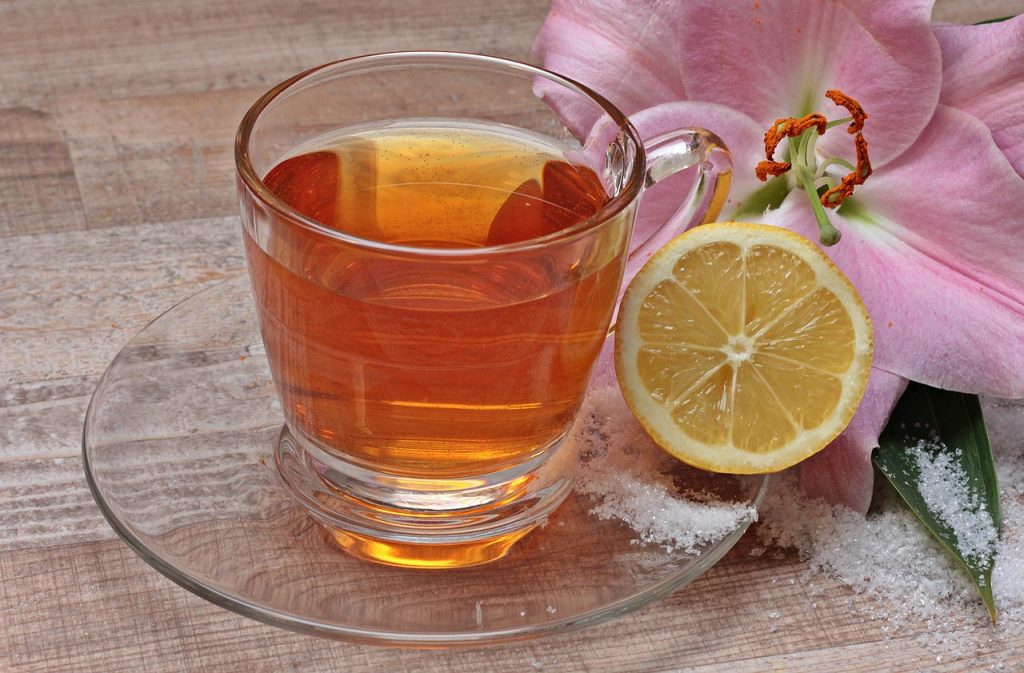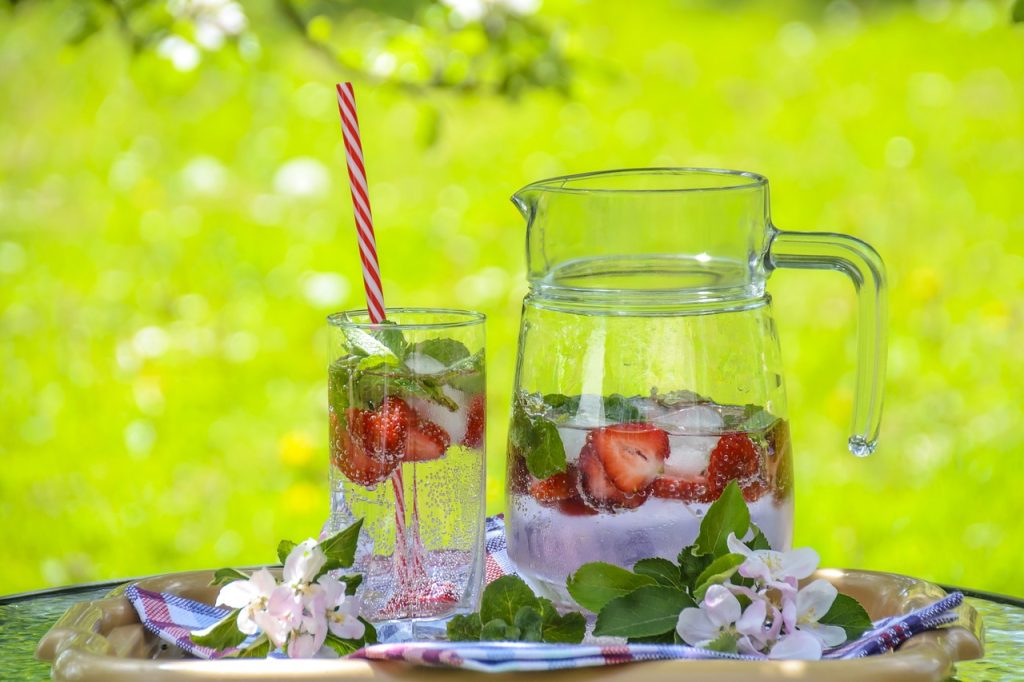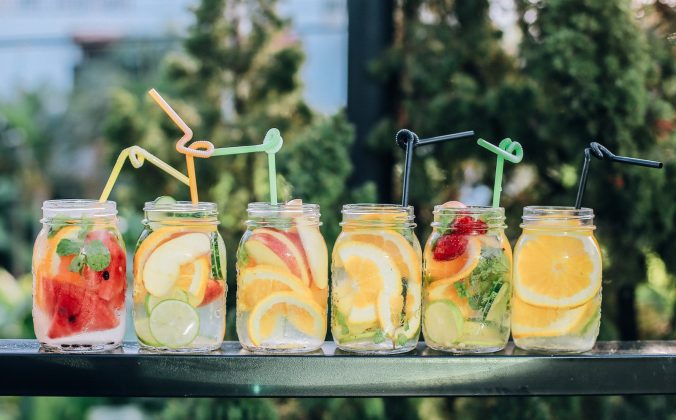Table of Contents
- Introduction to Fruit Tea and its Nutritional Values
- 1. Overview of Fruit Tea
- 2. Benefits of Fruit Tea
- 3. Types of Fruit Tea
- 4. Nutritional Content of Fruit Tea
- 5. Potential Health Risks of Fruit Tea
- 6. Tips for Enjoying Fruit Tea
- Frequently Asked Questions about Fruit Teas
- Conclusion
Introduction to Fruit Tea and its Nutritional Values
Fruit tea is like a burst of natural sunshine to the soul; its vibrant colors and delicious flavors bring joy and energy to each sip. It’s no wonder why so many people have embraced this refreshing beverage as part of their daily routine! But beyond just being delightful, fruit teas are also incredibly nutritious; they can provide a variety of vitamins, minerals, and antioxidants that keep your body healthy. In this article, we’ll explore the amazing nutritional benefits of different types of fruit tea and how you can incorporate them into your diet. So pour yourself a cup and let’s get started on our journey to discovering the healthiest way to enjoy fruit tea!
1. Overview of Fruit Tea
Ah, fruit tea! Who doesn’t love a cup of fruity goodness? Whether it’s blackberry, strawberry, or blueberry, all the luscious flavors are so delicious and refreshing. But there’s more to this delightful drink than just taste; let’s take a look at its nutritional benefits.
Fruit teas are packed with antioxidants, which help protect our bodies from free radicals that can damage cells and lead to chronic diseases like cancer. They also contain many vitamins and minerals, such as vitamin C, iron, calcium, and magnesium, all of which are essential for good health. Plus, they’re low in calories, making them an ideal drink for those who want to watch their weight.

And not only is it healthy, but it tastes amazing too! In fact, if you choose the right tea, you won’t even need sugar–some varieties have natural sweetness as well as added flavorings like jasmine or orange blossom that make them even more delicious. So why not indulge your taste buds while doing something good for yourself? Try out different types until you find one that fits your palate perfectly!
2. Benefits of Fruit Tea
Did you know that over 16 billion cups of tea are drunk in the UK alone each year? It’s no wonder why fruit teas have become increasingly popular—they offer a delicious and nutritious alternative to traditional black, green, or herbal teas. Here we’ll look at some of the benefits of drinking this delectable blend!
Fruit tea is packed full of vitamins and minerals essential for good health. The combination of naturally sweet ingredients means it contains fewer calories than many other drinks out there, making it an ideal choice for those looking to cut down on sugar intake. Also, depending on the variety chosen, it can be rich in antioxidants, which help protect cells from damage caused by free radicals.
For tea lovers seeking something unique yet healthy, fruit tea could be just what they’re looking for. With its sweet taste and aromatic aroma, it makes for an enjoyable drink whether served hot or cold. And with so many blends available today—from classic combinations like strawberry and raspberry to more exotic options such as mango and pineapple—there’s sure to be one that appeals to every palate!
So why not give it a try? Whether you want something refreshingly different or simply crave a healthier beverage option, fruit tea could be your new go-to cup!
3. Types of Fruit Tea
Ah, fruit tea! There’s nothing quite like it. But what types of fruit teas are there? Let me tell you all about them!
First off, there are herbal teas made with dried fruits and herbs—think chamomile with apple or hibiscus with raspberry. These teas have a delicate flavor and come in a variety of varieties depending on the combination of ingredients used – so you can find something that perfectly suits your taste buds.
Secondly, some folks prefer more traditional black or green teas blended with real pieces of fresh fruit for an extra burst of flavor. You can opt for pre-made blends like pomegranate-lemon green tea or make up your own mix using whatever type of tea and fruits you fancy.
Finally, let’s not forget about the fruity teas out there too! Tisanes (aka infusions) are wonderful drinks made from herbs, flowers, spices, and sometimes even vegetables—but they’re totally caffeine-free! Whether you choose blueberry ginger basil tisane or strawberry lemon thyme infusion, these delectable concoctions will certainly tempt your tastebuds.
Therefore, why not grab a cup and explore the world of fruit tea?
4. Nutritional Content of Fruit Tea
It’s time to explore the natural goodness of fruit tea! From its sweet aroma and flavor to its nutritional value, this beverage is definitely something worth trying. Let’s take a look at what it has in store for us health-wise.
Most fruit teas are naturally low in calories and don’t have caffeine, so you can enjoy them as part of a healthy diet without feeling bad about it.Teas containing dried fruits like apples or pears may also contain vitamins A, C, and E, which provide important antioxidants that help protect cells from damage caused by free radicals. Furthermore, some varieties include herbs such as hibiscus flower or rose hip extract, which have their own unique benefits, including improved digestion and immunity support.
The list of possible health benefits derived from drinking fruit tea goes on; one just needs to find the right combination that works best for them. All in all, it’s an excellent choice when looking for an enjoyable yet healthy drink with lots of added nutrients, so why not give it a brew?
5. Potential Health Risks of Fruit Tea
“A little tea can go a long way.” Ah, fruit tea—the perfect beverage for any time of day! But while it might offer an array of flavors and health benefits, there are potential risks to consider as well. From adverse reactions to certain ingredients to the amount you consume, here’s what all tea lovers should know about the possible hazards of this popular drink.
When brewing or ordering your favorite cup of fruit tea, be aware that some types contain added sugar, artificial flavoring agents, and caffeine—all of which could lead to side effects like headache, irritability, or nausea if taken in excess. It’s important to check labels carefully before consuming so you don’t overdose on these additives. Additionally, those with allergies must exercise extra caution when choosing fruity teas since they may contain allergens like nuts or dairy products not listed on the label.
With natural ingredients such as hibiscus flowers, ginger root, and rooibos leaf also used in many blends, overconsumption can cause more than just an upset stomach. Too much vitamin C from fruits like oranges or lemons can increase acidity levels in your bloodstream, leading to joint pain or kidney stones. Even herbal infusions made only from plants can have unpleasant consequences if taken excessively due to their medicinal properties. So remember: moderation is key when indulging in delicious cups of fruit tea!
As a passionate sipper of this beloved beverage, it pays to be mindful because the healthiest decisions start at home—and with our teacups!
6. Tips for Enjoying Fruit Tea
Ah, fruit tea—it’s a wonderfully refreshing and flavorful beverage that can provide lots of health benefits. But before we get into the tips for enjoying it to its fullest potential, let’s take a quick look at some of the risks associated with drinking too much.
First off, some types of herbal teas may contain natural substances like caffeine or tannins, which, when consumed in large amounts, can cause side effects such as headaches, nausea, and insomnia. Secondly, if you’re on certain medications or have any pre-existing conditions, speak with your doctor first before adding any new beverages to your diet.
Now that we’ve got those warnings out of the way, let’s talk about how to enjoy this delicious drink! Start by selecting quality ingredients: organic fruits are ideal since they will be free from pesticides and other artificial compounds. And don’t forget to opt for proper brewing techniques; steeping times vary depending on what type of tea blend you choose, but generally speaking, two minutes is enough time for most teas to infuse their flavor without becoming bitter. Finally, experiment! Try different flavors and combinations until you find one that really stands out for you.
Fruit tea is an incredible treat no matter how you decide to prepare it, so why not give it a try today? You won’t regret it!
TIP: If possible, buy loose leaf herbal teas instead of prepackaged bags; not only are they fresher and better quality, but they also offer more control over how strong (or weak) you’d like your drink to be!
Frequently Asked Questions about Fruit Teas
Ah, the comforting aroma of a hot cup of fruit tea! But how many calories are in a cup of this delightful beverage? Let’s take a look.
When it comes to counting calories, there is no one-size-fits-all answer, just as every type of tea has its own unique nutritional content. However, here are three key factors that will help you estimate:
The kind of tea being brewed—different types and blends can have varying levels of calories;
the amount of sugar or other sweeteners added;
Whether milk or cream was used in the brewing process
So next time you’re enjoying your favorite fruity brew, keep these points in mind to get an idea of just how calorie-rich (or not) that delicious beverage may be! After all, if you’re looking for a low-calorie option, knowing what goes into your cup of tea could make all the difference. And with so many tempting flavors out there, why limit yourself when making healthier choices still lets you enjoy the best teas on offer?
When it comes to tea, I’m a bit of an enthusiast. The flavor combinations and the warmth that radiates through my body with each sip are simply divine! So when I heard about fruit teas, I was all in. But then the question arose: Is fruit tea good for weight loss?
Well, let me tell you—fruit tea can be beneficial for losing those extra pounds! Here’s why:
It contains antioxidants that reduce inflammation and boost your metabolism.
Its low-calorie profile helps keep cravings at bay.
There are no preservatives or added sugars, so you know exactly what you’re putting into your body.
At the end of the day, if you’re looking for something sweet without any guilt attached, go ahead and reach for some fruity goodness. Enjoying a cup of hot tea as part of a balanced diet just makes sense. Not only will it satisfy your taste buds, but it will also help support your health goals along the way!
When it comes to making fruit tea, the possibilities are endless! From adding various fruits and spices for the flavor to experimenting with different brewing techniques, there’s so much you can do. But which method is best?
My favorite way to make fruit tea is by using a French press or an infuser teapot. These tools allow you to steep your tea for longer periods of time without having to worry about over-steeping; plus, they provide easy access when it’s time to discard used leaves. To get even more flavor out of your tea, try muddling fresh fruit in hot water before steeping your desired combination of herbs and spices into the mix. This will give you an added layer of sweetness that complements the underlying tartness of some types of fruit.
If you want something simpler than handcrafting each cup of tea, consider investing in ready-made mixes from local specialty stores or online retailers. There are tons of delicious options available on the market today that take all the guesswork out of creating a flavorful blend at home. Plus, if you’re looking for health benefits associated with drinking fruit teas—like weight loss—you can find pre-packaged blends specifically designed for this purpose as well!
A cup of fruit tea is an absolute delight! With its sweet and juicy flavor, there’s no better way to enjoy a warm summer day than with a tall glass of this deliciously refreshing beverage. But sometimes, even the natural sweetness of the fruit isn’t enough for some, so what are the options?
Are there any natural sweeteners that can be added to fruit tea? Absolutely! For those who like their drinks extra sweet without compromising on taste, honey or maple syrup are great alternatives. Not only do they add a unique aroma and flavor to your drink, but they also provide additional nutritional benefits such as antioxidants and minerals. Plus, these all-natural ingredients will keep you feeling energized throughout the day.
However, if you want something more exotic and flavorful, try adding spices such as cardamom, ginger, or cinnamon. These spices bring out the unique flavors in each type of tea while providing subtle yet delightful notes of spice. Additionally, certain herbs, such as mint and lemongrass, have been known to give fruity teas an aromatic twist that elevates them from ordinary to extraordinary!
So whether you’re looking for a naturally sweeter taste or just something fun to mix up your routine, don’t forget about these delicious additions when making your next batch of fruit tea!
As any tea lover knows, nothing quite compares to the pleasure of sipping on a cup of herbal or fruit tea. But what are the differences between them? Let’s dive in for a closer look!
Herbal teas don’t come from Camellia sinensis, which is the plant used to make regular black and green teas. Instead, they’re brewed with herbs like chamomile, hibiscus flowers, and ginger root, all of which are naturally caffeine-free. These can give you delicious flavor without added sugar, so if you have a sweet tooth but want to avoid processed sugar, this could be the perfect option. Fruit teas are usually made using real fruits and berries such as lemons, oranges, apples, and blueberries; these often contain some natural sugars depending on the type of fruit being used. The great thing about both types of tea is that they can provide an array of health benefits while still tasting amazing.
So why choose one over the other? Herbal teas tend to offer more intense flavors because many herbs have naturally strong tastes. On the other hand, fruit teas blend fruity notes together into something deliciously unique. Whichever you go for, it’ll always depend on your own personal preference; however, both make for wonderful accompaniments during breakfast or afternoon tea time! Whether you prefer robust herbal blends or light and fruity infusions, there’s sure to be something out there for everyone who enjoys a good cup of tea!

Conclusion
Fruit tea is a tasty and healthy drink that can be included in a healthy diet. With so many varieties to choose from, there’s something for everyone! A cup of fruit tea contains around 50 calories, making it an ideal choice if you’re trying to lose weight or maintain your current weight. The best way to make fruit tea is by steeping the herbal ingredients in hot water until the desired flavor is achieved. Natural sweeteners such as honey, agave nectar, or stevia can also be used to enhance the flavor and sweetness without adding extra calories.
It’s important to note that while herbal and fruit teas have similar benefits, they are not interchangeable. Herbal teas generally contain no caffeine, whereas fruit teas usually do contain some amount of caffeine. Interestingly, caffeine consumption may help boost metabolism, helping those looking to shed pounds even more!
Overall, drinking fruit tea is a great way for anyone looking for a tasty yet low-calorie drink to get their daily dose of vitamins and minerals. Whether you prefer traditional blends or more exotic flavors like mango-ginger or hibiscus-cranberry, there’s sure to be one out there that suits your palate perfectly. So go ahead and enjoy your favorite warm (or cold!) cup of fruity goodness today!
